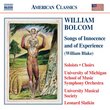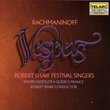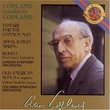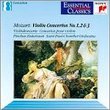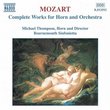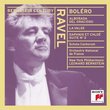| All Artists: Franz Joseph Haydn, Nicholas Ward, Northern Chamber Orchestra Title: Haydn: Symphonies No. 6 "Le Matin", No. 7 "Le Midi", No. 8 "Le Soir" Members Wishing: 0 Total Copies: 0 Label: Naxos Original Release Date: 1/1/1994 Re-Release Date: 6/28/1994 Genre: Classical Styles: Historical Periods, Classical (c.1770-1830), Symphonies Number of Discs: 1 SwapaCD Credits: 1 UPC: 730099572224 |
Search - Franz Joseph Haydn, Nicholas Ward, Northern Chamber Orchestra :: Haydn: Symphonies No. 6 "Le Matin", No. 7 "Le Midi", No. 8 "Le Soir"
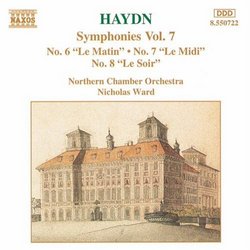 | Franz Joseph Haydn, Nicholas Ward, Northern Chamber Orchestra Haydn: Symphonies No. 6 "Le Matin", No. 7 "Le Midi", No. 8 "Le Soir" Genre: Classical
|
Larger Image |
CD DetailsSimilarly Requested CDs
|
CD ReviewsSuperb early Haydn symphonies! Mike Powers | Woolwich, ME USA | 06/19/2000 (5 out of 5 stars) "Until recently, the Northern Chamber Orchestra, under the direction of Nicholas Ward, has not been very well known outside its native Britain, although they have recorded for the Naxos label for several years. One of the orchestra's most notable achievements for Naxos is a cycle of early symphonies composed by Joseph Haydn. This CD contains three of Haydn's earliest symphonies - No. 6 ("Le Matin," or "Morning;" No. 7, "Le Midi," or "Noon;" and No. 8 "Le Soir," or "Evening.") The Northern Chamber Orchestra plays with tremendous enthusiasm, vitality, and an obvious enjoyment of the music, successfully capturing Haydn's intent to convey musically the time of day. Fast movements are lightly sprung, slow movements are played with just the right touch of gravity, and "menuettos" rollick merrily along. Throughout all three symphonies, Haydn's sunny, optimistic disposition, and his tremendous musical originality and inventiveness shine through. Highly recommended!" Exploring the Haydn Symphonies -- Nos. 6,7, and 8 Robin Friedman | Washington, D.C. United States | 08/02/2004 (5 out of 5 stars) "This CD is part of a collection of the complete symphonies of Joseph Haydn (1732-1809) on the budget-priced Naxos label. The performers are the Northern Chamber Orchestra directed by Nicholas Ward. The symphonies on this CD are early works of Haydn, written in 1761 when the composer was 29. They are programmatic in character and are called "morning" "noon" and "evening". They were written and are best heard as part of a single series. The playing on this disk is done with spirit and elan, and the CD has received high critical recognition including the Penguin Roseate rating. These works are eminently worth hearing in their own right. Furthermore, the listener will learn how symphonic form developed during the classical period by listening to these symphonies and comparing them to some of Haydn's later works, such as some of his "London" symphonies. The three symphonies on this CD are composed in a "concertante" style. Each work features extensive passages of solo performance juxtaposed against the small chamber orchesta. The solo instruments include, flute, string bass, violin, and cello. In some movements, two solo violins and a cello combine as an ensemble to play against the larger orchestra. Thus, these early Haydn symphonies hark back to Vivaldi's concertos, such as "The Four Seasons" as well as forward to the fully-developed classical symphony. The symphony no. 6 in D major, "Morning" opens with a slow, rising theme symbolizing daybreak. The opening movement features solos for flute alternating with orchestral passages and passages for oboe and horn at the conclusion. The second movement, in which a moderately paced section is sandwiched between slower sections, involves solos for the violin and the cello, particularly in the middle section. The combination of solo violins and cellos is repeated in the middle movement of each of these works. The minuet theme in the third movement again features the flute with a delighful solo for the bassoon over low strings in the trio. In the finale, the flute again predominates. The symphony no. 7. "Noon" also opens slowly with several loud chords followed each time by softer, running passages. The initial movement breaks into an allegro with solo passages for violins. The slow movement opens in the minor in a passage for pulsing strings. In the midst of the movement, the major key returns. There are eloquent, recitif, passages for the violin soloist in both sections of the movement and passages for the solo cello and flute as well towards the end. The minuet is highlighted by a trio featuring the string bass over a walking figure in the upper strings. The finale opens with a falling figure in the violins and features solo passages for the flute. The symphony no. 8 in G major, "Evening" is the only one of the three without a slow introduction. It opens lightly in the strings and has a distinctly gallant cast. The second movement, andante, is binary in form. It opens with a sweet theme in the strings and includes lengthy flowing solos for the cello with solos for the bassoon as well. The minuet again includes a solo for the string bass in the trio, which states and expands upon the minuet theme. The finale is Haydn's picture of an evening storm beginning with a dramatic tremelo in the strings and including solo passages for flute, violin, and horn. This disk is an outstanding introduction to the early classical symphony and will delight new and experienced music lovers alike." Classical music.......... yazdanbuksh | Pune Maha. India | 09/24/2000 (5 out of 5 stars) "People often get confused between classical music and romantic music, people want to hear the orchestras at their loudest and then they want to hear popular artists, like Bruckner, R.Strauss, Mahler, etc. If you fit into any of the above catagories, then this cd is not for you. Ward conducts these early Haydn symphonies with what can only be described as honesty. The rythem is at a breath taking pace and the recording is crystil clear. Actually this 1 cd of 5 which come as a set (Volume 2), on Naxos, is excillent and highly rated in the Penguin Guide. More over very few conductors have even conducted these symphonies. These Haydn symphonies Morning, Noon and Evening on this disc take the listner on a journey (Though the day). It took me on an adventure discovering the day we so easily take for granted (Day in and Day out). I very strongly recommend the entire volume of the Haydn symphonies (104 in all) neatly packed by Naxos and at budget price."
|

 Track Listings (12) - Disc #1
Track Listings (12) - Disc #1
